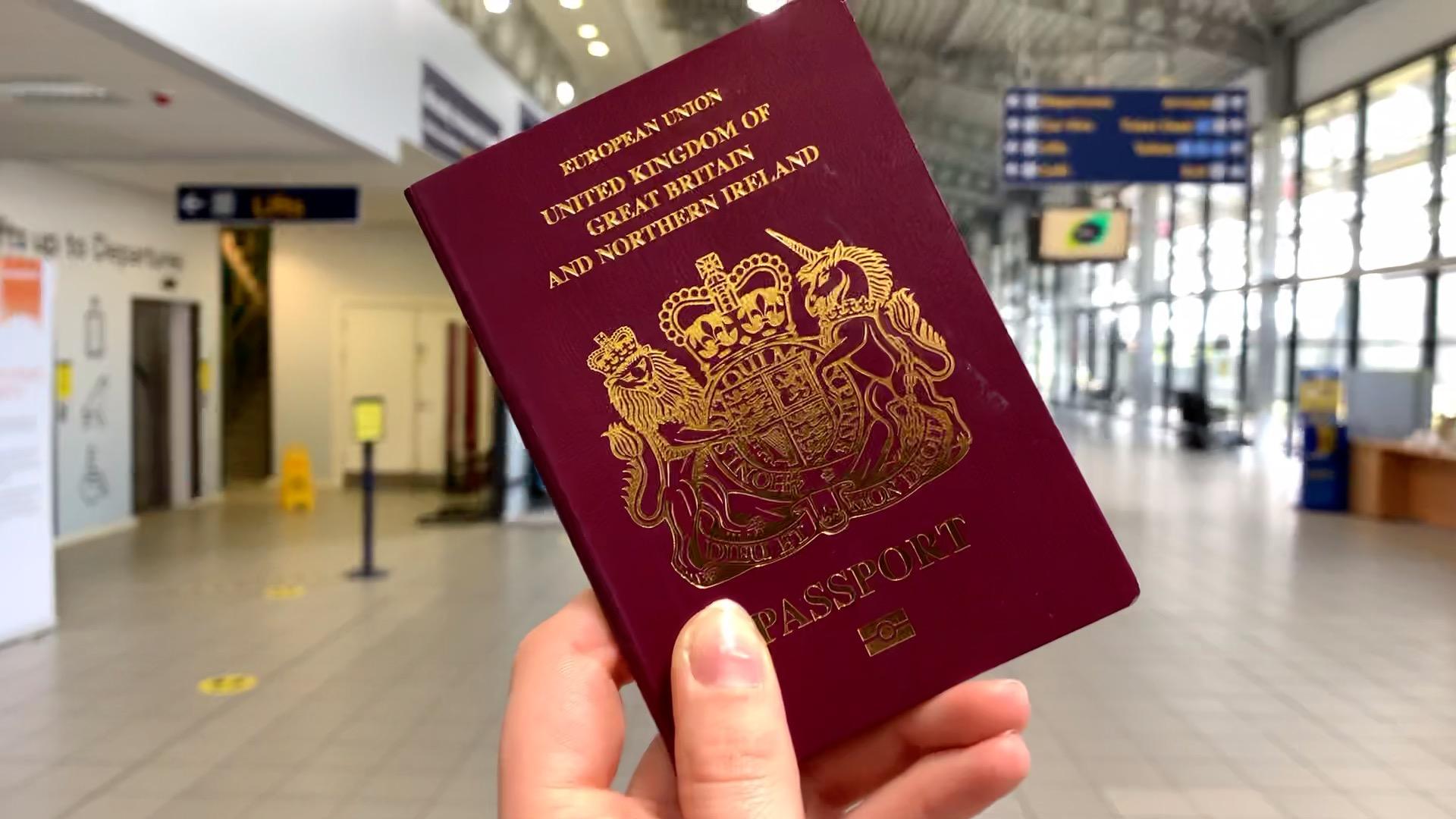Biden raises vaccination goal to 1.5m a day after criticism
- Published
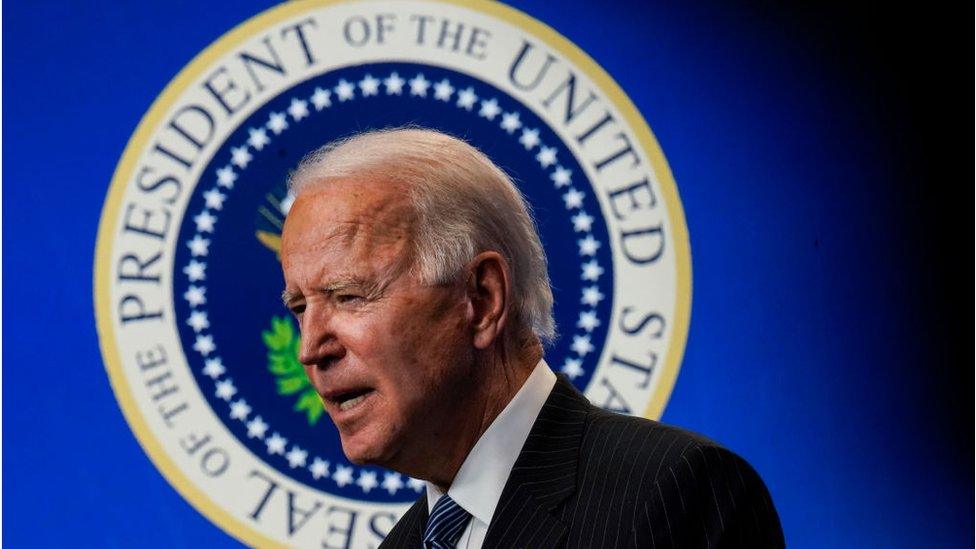
After criticism that his original goal was not bold enough, US President Joe Biden has said he expects the US will soon be able to vaccinate 1.5 million people a day.
He had announced last week that 1m vaccines would be administered daily in the first 100 days of his presidency.
But some media noted the US had already nearly reached that target under the Trump administration.
Mr Biden also renewed Trump-era Covid bans on Monday, adding South Africa.
What did Biden say?
In the first time formally taking reporters' questions during his presidency, Mr Biden said on Monday that he hoped they would be able to get to 1.5 million vaccinations administered daily.
"I think with the grace of God... we'll be able to get that to 1.5 million a day," the Democrat said.
He added: "I hope we'll be able to increase as we go along so we'll get to 1.5 million. That's my hope."
Some media had questioned whether the new president's target of one million shots per day was ambitious enough.
Last week, at the tail-end of the Trump administration, the US had already reached an average of around 980,000 vaccine doses administered daily.
When an Associated Press news agency reporter asked last Thursday why Mr Biden had not aimed higher, he shot back: "You all said it's not possible. Come on, give me a break man."
But CNN rated, external the president's claim about the media as false.
During Monday's press conference, a reporter suggested to Mr Biden that he had changed his tone on defeating the public health crisis, pointing out that as a candidate he had vowed to "shut down" Covid-19, only to say last week: "There's nothing we can do to change the trajectory of the pandemic in the next several months."
Mr Biden replied: "What I meant was it took a long time to get here and it's going to take a long time to beat it."
"I'm confident we will beat this virus," he added, "but we're still going to be talking about it in the summer and dealing with it in the fall."
Five ways President Biden plans to tackle coronavirus in his first 100 days
What's happening with the travel bans?
The Biden administration on Monday renewed Trump-era Covid-19 travel bans on non-US visitors from Brazil and most of Europe, including the UK and Ireland.
The White House also imposed a new ban on South Africa over its virus variant.
Former President Donald Trump had ordered the bans to end on 26 January as one of his final acts in office.
The new travel restrictions came as Minnesota recorded the first US case of the Brazil variant from a resident who had recently travelled to that country.
"This case marks the first documented instance of the Brazil P.1 variant in the United States," said the Minnesota Department of Health, external on Monday.
The unnamed patient lives in the Minneapolis-Saint Paul area, said the department.
White House Press Secretary Jen Psaki confirmed the decision to continue the restrictions on foreign travellers on Monday.
She told reporters: "With the pandemic worsening and more contagious variants spreading, this isn't the time to be lifting restrictions on international travel."
All international travellers must also present a negative test within three days of air travel to the US.
Travel restrictions have been in place since mid-March.
When Mr Trump ordered a ban on flights from China in February, citing the "Chinese virus", Mr Biden railed against Mr Trump's "hysterical xenophobia". At the time, the Biden campaign denied the remark was about Mr Trump's travel ban.
Ms Psaki was asked on Monday about Mr Biden's stance in light of the "xenophobic" remark. She said: "He was critical of the former president for having a policy that was not more comprehensive than travel restrictions and he conveyed at the time - and more recently - the importance of having a multi-faceted approach."
What's the situation in the US?
The US has had more than double the cases of the next highest country, India. There have been over 420,000 deaths - nearly twice as many as Brazil, the second highest - and above 25 million cases.
New York City - the most populous urban area in the country - has postponed plans for three mass vaccination sites due to a low supply of vaccine doses.
City authorities were co-ordinating plans to turn two baseball stadiums as well as an outlet mall into inoculation hubs, but vaccine supply has not kept up with demand.
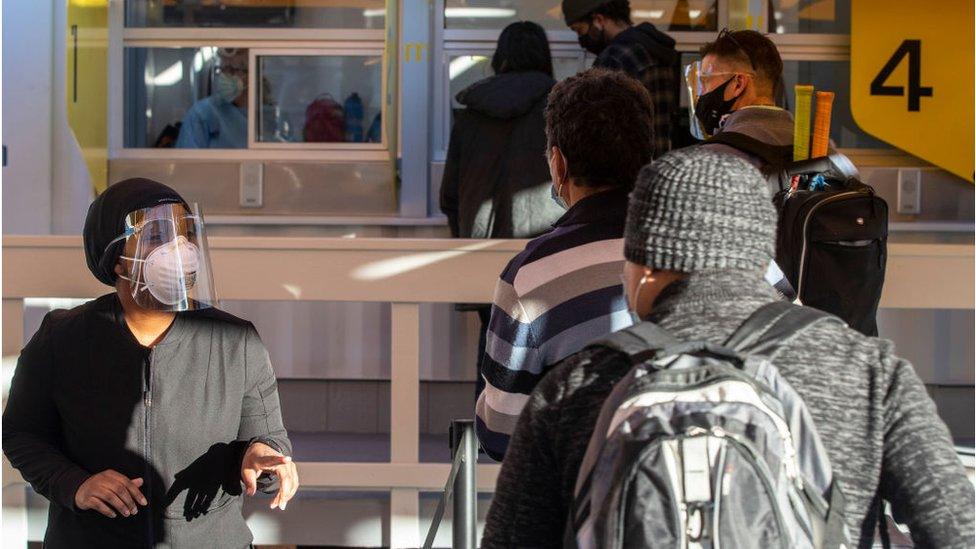
Staff at Los Angeles airport move passengers through the line at the onsite Covid testing lab
Also on Monday, California lifted a stay-at-home order imposed in December as officials said projections for hospital intensive care capacity had improved. The Golden State has been hard hit by a post-holiday surge that stretched hospitals to their limits.
Governor Gavin Newsom is facing intense criticism over his refusal to share the data used by his administration to drive Covid policy decisions. State health officials said the metric is complicated, and would only confuse the public if released.
The stay-at-home order had been in place for Southern California, the San Joaquin Valley and the Bay Area, which are home to over 90% of the state's residents.
The region is still under restrictions, however - non-essential businesses are still to remain closed and restaurants must serve outdoors only.
The Biden administration is proposing another economic rescue package, this one worth $1.9tn (£1.4tn).
However, Senate Republican leader Mitch McConnell said on Monday he was against "an imprecise deluge of borrowed money that would direct huge sums toward those who don't need it".
Related topics
- Published21 January 2021
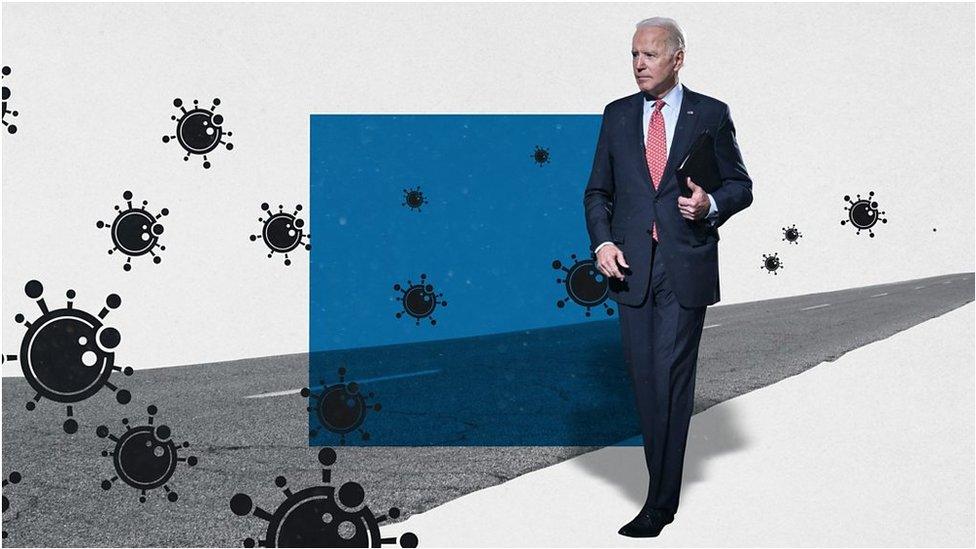
- Published18 January 2021
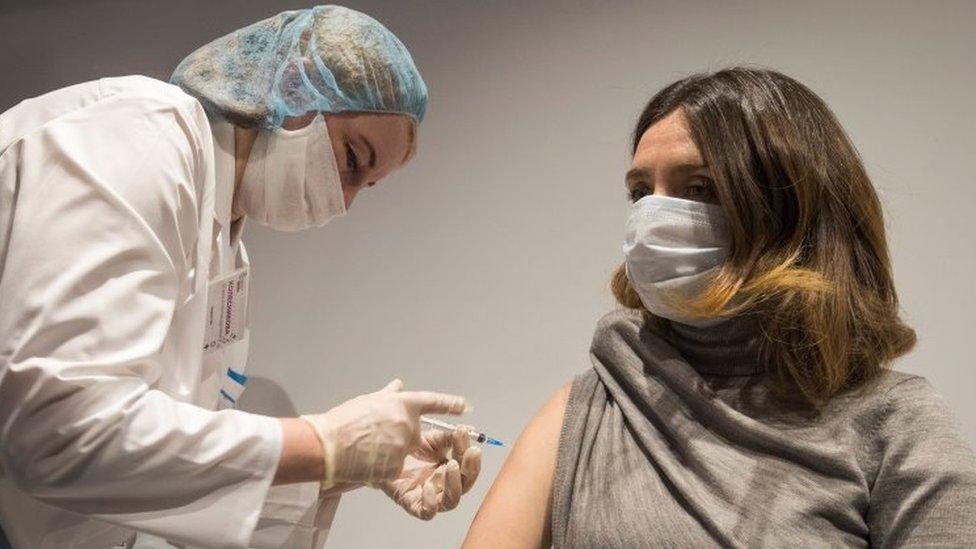
- Published18 January 2021
